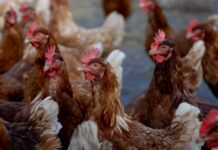The economic winners command ever greater amounts of economic activity and wealth.
Shiller is accurate. But the situation he describes is not inevitable.
The people equation. The economy is a creation of people. It is shaped by decisions made by people – especially policy choices – that can be changed by people.
Shiller says technological change is driving the winner take all economy.
Electronic technology has expanded the reach and influence of the winners. Computers, remote sensors, and the like allow giant firms to effectively manage far more than they could before and expand their influence.
In agriculture, new products like Roundup Ready crops have removed management challenges that previously kept giant operations from driving out mid-size farms that could more intensively manage production.
Government has always had a role to play in protecting the common good by countering the natural tendency for wealth to concentrate in private economies.
That role is especially critical today, with technology adding fuel to the fires of wealth concentration.
Wrong direction. But just when that is most needed, government has moved in the opposite direction to policies that reinforce rather than counter wealth concentration.
Income tax rates have been reduced and estate taxes eliminated for the biggest winners.
Anti-trust enforcement has been all but abandoned. Giants in agriculture, retailing, and other businesses are allowed to flex their economic power to demand volume premiums and discounts unavailable to their smaller competitors.
Land grant challenge. The agricultural experiment stations of the nation’s land grant colleges have, in too many instances, become advocates of the industrialization of agriculture and purveyors of technology that supports it.
We urge them to instead help rural people create the future they want.
We need land grant colleges to create new knowledge and production systems that strengthen small and mid- size farms and enable them to use their management to cut input costs and produce higher value products.
We need them to help rural people create new businesses and new opportunity.
Change is coming. Fortunately, history is cyclical. Periods of excessive wealth concentration are often followed by periods of reform.
Repeatedly throughout history, people have recognized the social damage of excessive concentration of wealth, power, and income and have reversed it.
It has happened over and over all through history. And we can do it too.
(Chuck Hassebrook is executive director of the Center for Rural Affairs, P.O. Box 406, Walthill, NE 68067.)
Get 4 Weeks of Farm and Dairy Home Delivered









